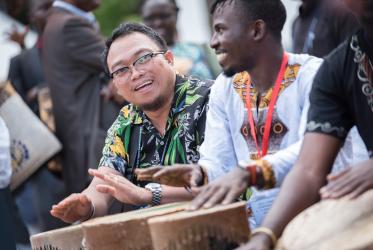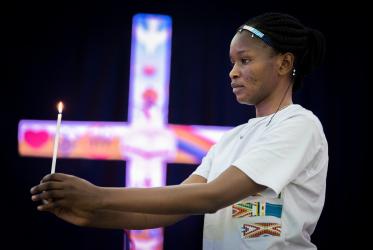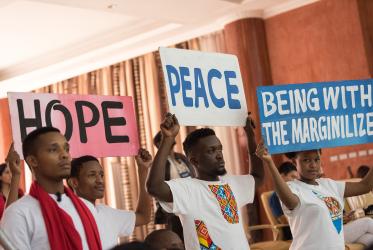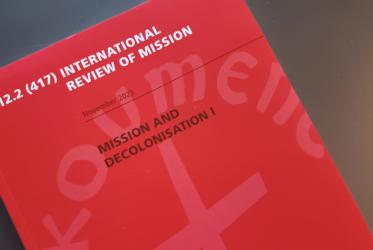A World Council of Churches (WCC) consultation in Pietermaritzburg, South Africa has discussed creative ways of using the WCC statement in mission education and curriculum. The WCC statement, titled “Together towards life: Mission and evangelism in changing landscapes”, seeks a renewed understanding and practice of mission and evangelism.
A number of examples from the work of churches and educational institutions on the use of the WCC mission statement were highlighted at the consultation.
Organized by the WCC Commission on World Mission and Evangelism (CWME), the consultation was held from 20 to 24 October. The event brought together some 30 participants, including representatives of the CWME, missiologists, church leaders and mission practitioners.
The consultation was hosted by the University of KwaZulu-Natal in South Africa.
Prof. Roderick Hewitt and Dr Chammah Kaunda, who have used the mission statement as a resource at church leadership training in Swaziland, shared their experiences. They said that with “powerful and transformative dynamism the statement offered a new approach to education”. This is because the “missional position of the church in the age of secularism is situated at the margins of the society. The transformation never genuinely happens at the centre but at the margins where people are seeking ‘fullness of life’,” added Hewitt.
“I am convinced that using the mission statement in the curriculum is crucial in influencing the thinking on mission,” said Prof. Kirsteen Kim. She said the “nature of mission studies needs to be couched in a pneumatological framework and informed by the world Christianity paradigm”.
“An urgent challenge facing the churches today is the formation of mission-minded leadership. The good news is that help is on the way,” said Prof. Kenneth Ross. “The Pietermaritzburg consultation has launched a process that aims to deliver a ground-breaking mission studies curriculum, based on the widely acclaimed mission statement,” Ross added.
Dr Atola Longkumer commented that “organizing a consultation in Pietermaritzburg is significant as the mission statement is used by the University of KwaZulu-Natal”. She said the “academic faculty and mission practitioners at the university have used diverse insights offered by the statement, widening perspectives and understanding of mission”.
“As the vision provided by the statement becomes part of the church’s mission, we will be in a whole lot of ‘trouble’ and joy,” said Rev. Dr Peter Cruchley-Jones. “As I think about bureaucracies, anxieties and vanities of the church, I pray most devoutly: come Holy Spirit! Transform us for life,” he said.
Rev. Dr Jooseop Keum, the CWME secretary, said that the commission is now focusing on the contextualization of the mission statement by developing location-specific training modules and curriculum on missional formation. He said “these resources are to be used in congregations, theological schools and training centres for mission practitioners for the next three years, while we make our way towards the next World Mission Conference in 2018”.







